Does social media make us more antisocial?
You have probably heard the criticism of social media. It is a waste of your time and can destroy your private life. But can it actually make us antisocial? Is that true?
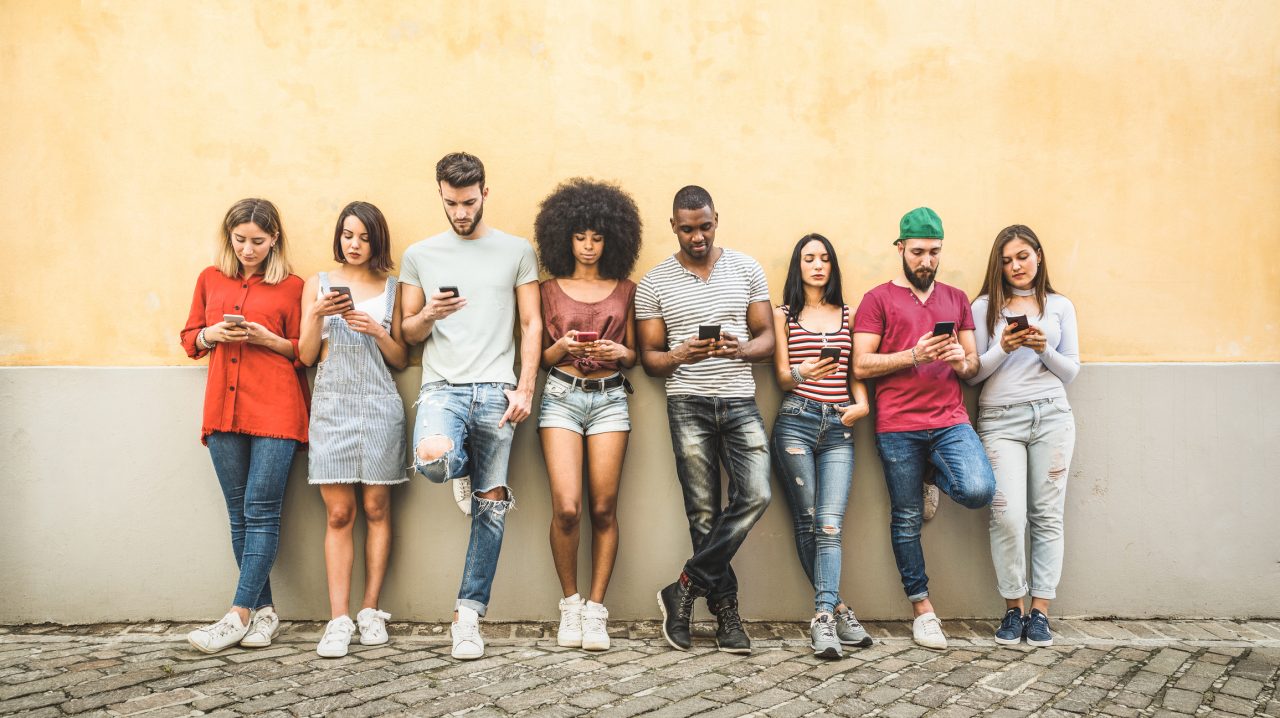
Social media and addiction
In 2010, psychiatrists said that you can be addicted to social media and that it can be an illness. The psychiatrists presented a study of people who spent five hours a day checking Facebook. Those people rarely left the house and had problems keeping a job. They also checked for updates while being at the therapist’s. They chose to do this instead of interaction with the therapist. But why? Successful social contact means that we experience real rewards in the brain.
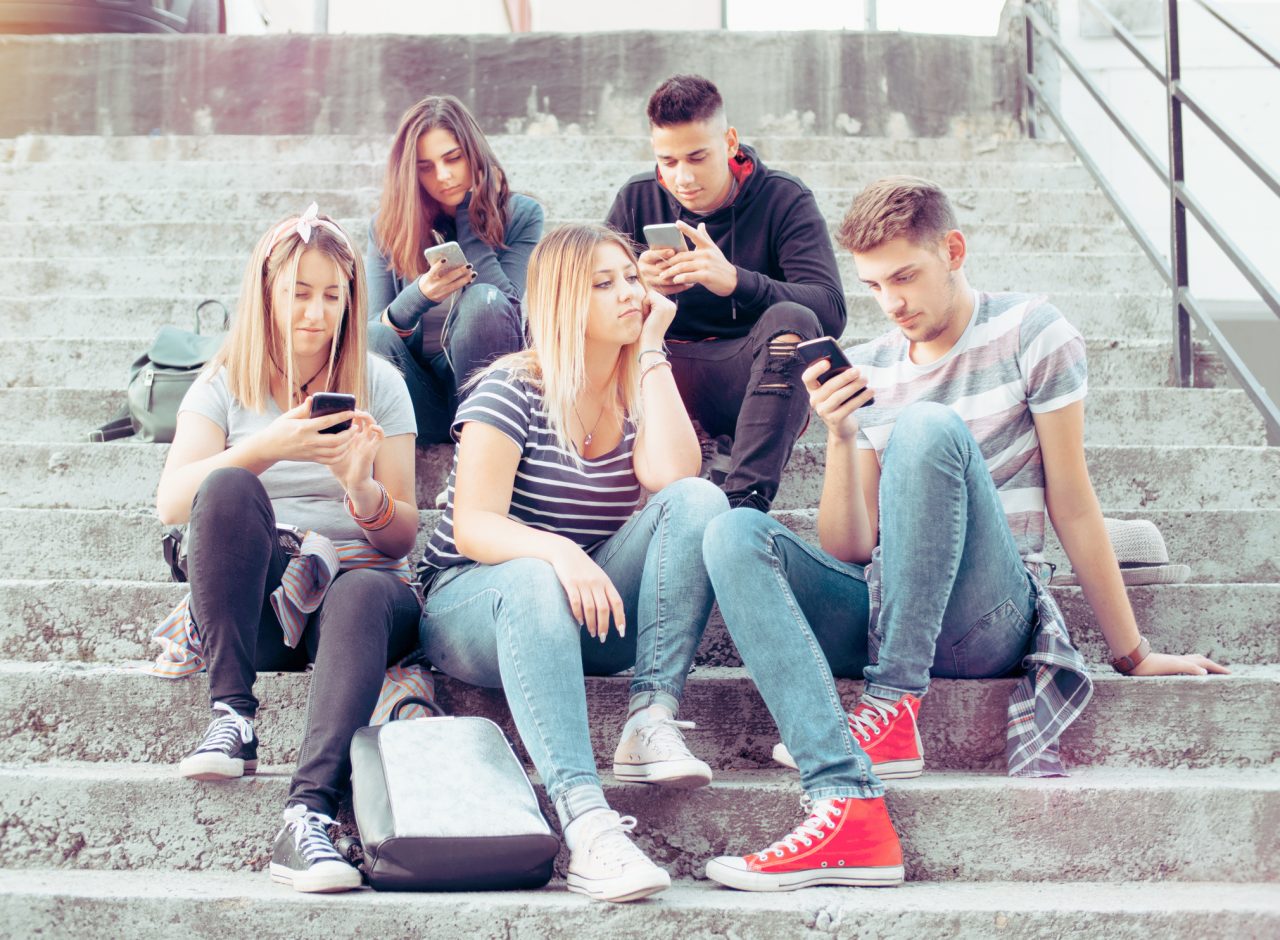
Jente uten smarttelefon mens alle andre i gjengen rundt henne sitter opphengt i hver sin smarttelefon
Reward for the brain
There is an explanation for the reward we get from being social. A hormone called oxytocin is released and gives a feeling of pleasure. Oxytocin is known as the love or kindness hormone. Dopamine is also released in the brain when we experience a positive social setting. It gives us a rush of joy. Social media triggers pathways for reward in the brain and can lead to addiction.
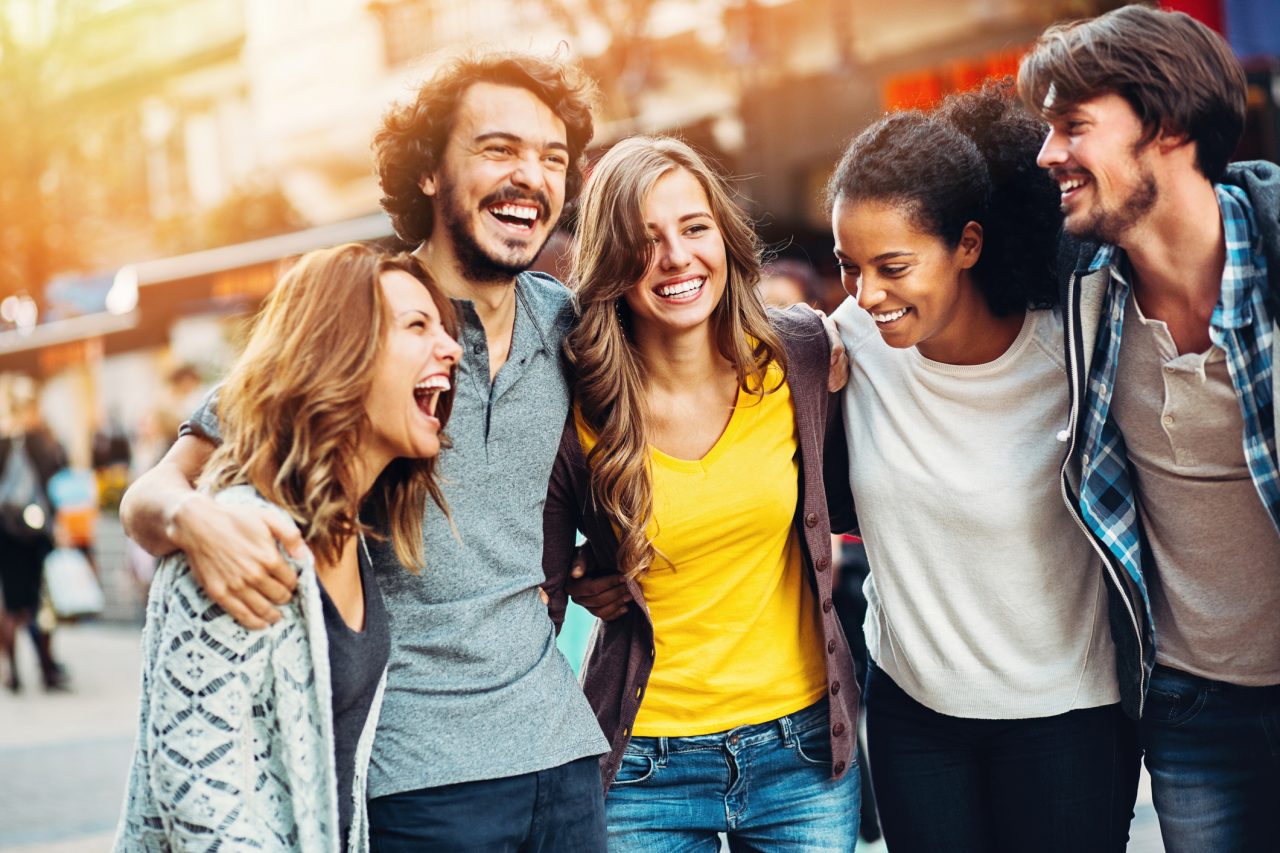
En vennegjeng som ler og har det morsomt samme i en by
Easier reward
One of the reasons for addiction is that the social “rewards” via social media are much easier to get without the effort that a “normal” social setting demands. Drugs work in the same way. This becomes a shortcut to reward the brain. The brain will adjust over time and expect these nice signals. These addictions are risky because they can make a person less empathetic.
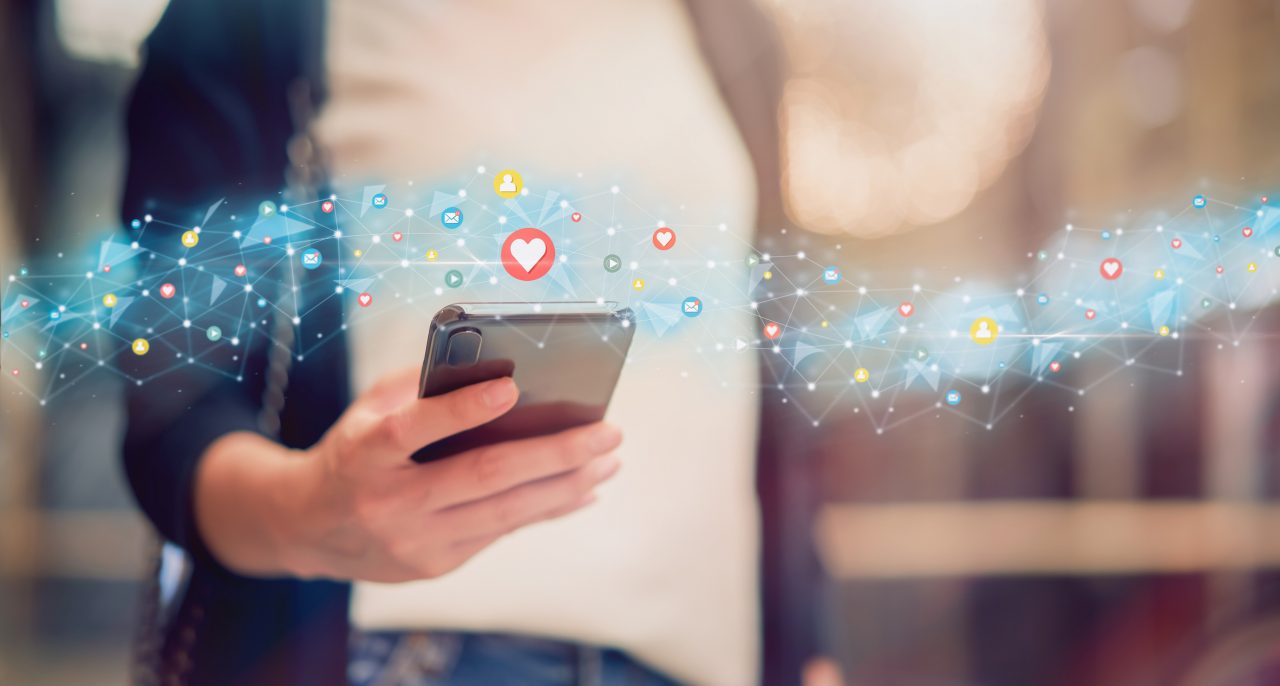
Dame som holder smarttelefon med sosiale medier ikoner
Control freak
Another side of social media is that we have more control over our social activities online. We can decide how other people see us. You can upload only nice pictures, delete stupid comments, check spelling, share good opinions and so on. This has to do with the fact that we want to control how we present ourselves. We want to look our best so that other people will like us.
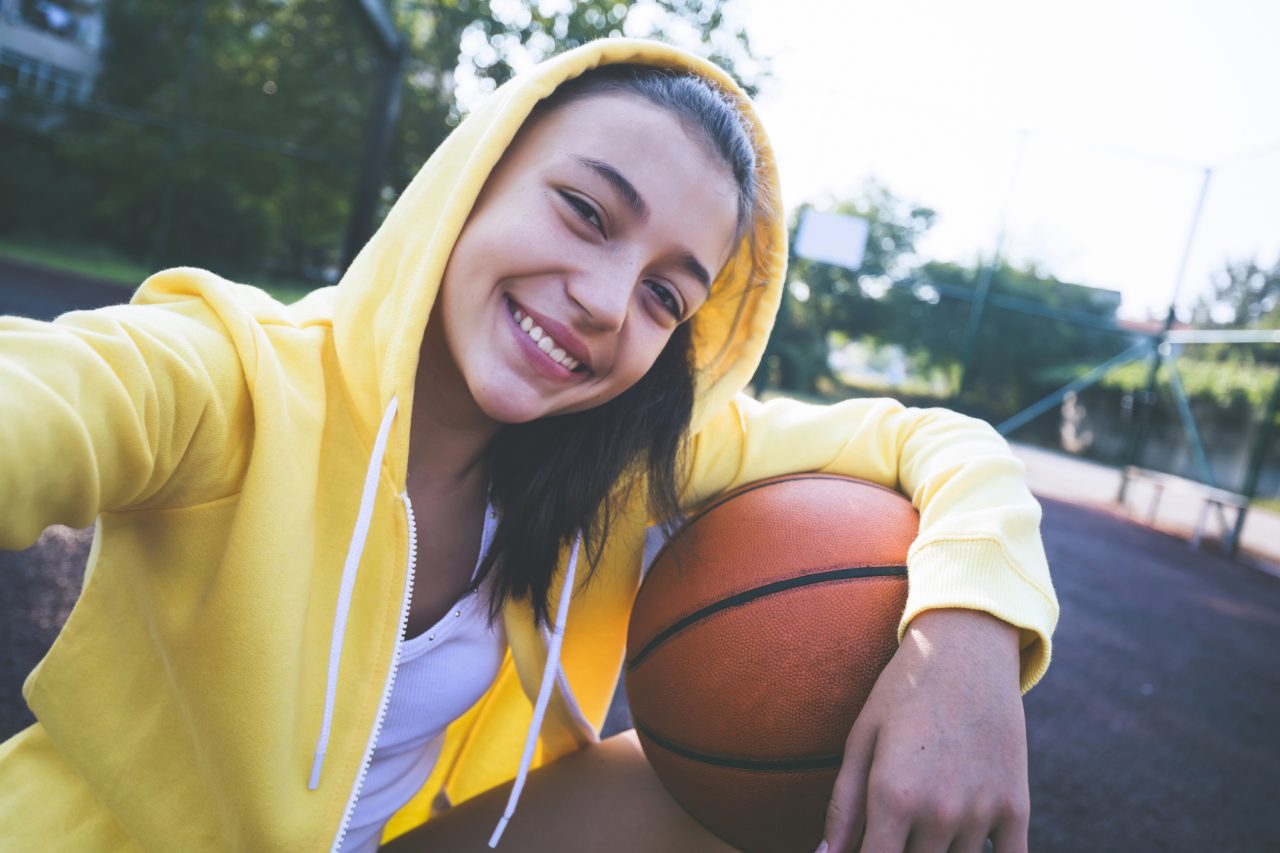
Tenåringsjente som spiller basketball
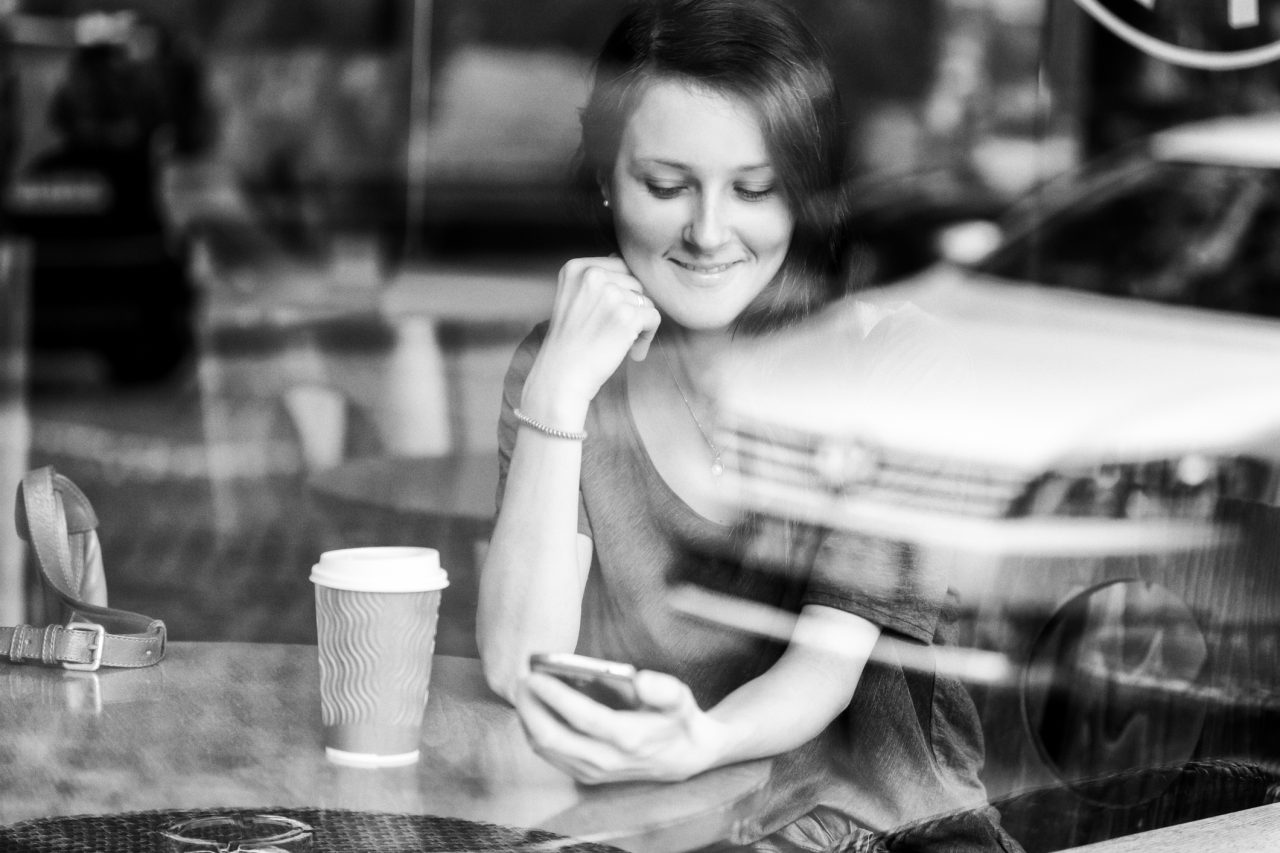
Dame som sitter på en cafée og ser på smarttelefon
Sources:
- Burnett, Dean (2018):
Do Social Networks Make Us Antisocial?
- Vitenskapens guide til lykken (2018)
Orage Forlag AS
Media Rights:
-
-
Getty Images
-
Getty Images
-
Getty Images
-
Getty Images
-
Getty Images
-
Getty Images
-
NRK
-
Getty Images
-
NRK
-



Social interaction
Social interaction is when we are together with others. It can be both face-to-face and online. Both types of interaction affect how we think and learn. Research shows some interesting findings on how the brain reacts when we are in groups.
Research shows more activity in the brain when we are in groups. There is high activity in the part of the brain that is called the frontal lobe when we think about ourselves and which groups we belong to. So being together with others forms our identity. We need social contact.
Being too social is not good either. It can be mentally demanding. It takes a lot of work for the brain to get involved with other people. That explains why we need both social interaction and time alone.
But are we able to take breaks when we should be constantly available?
1 / 3
Tenåringsgjeng og sosiale medier